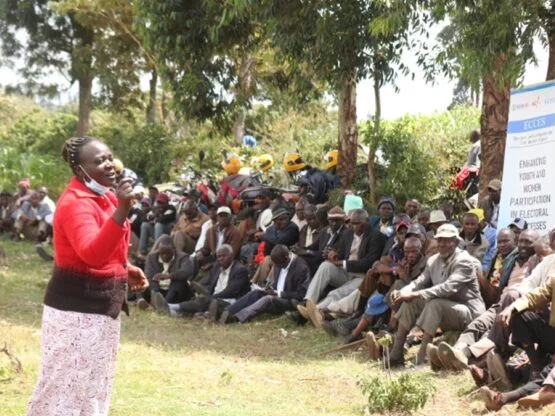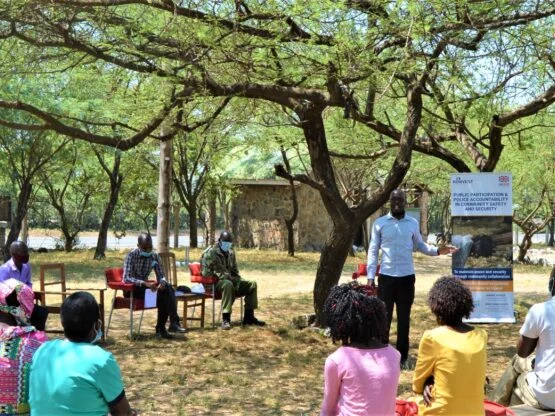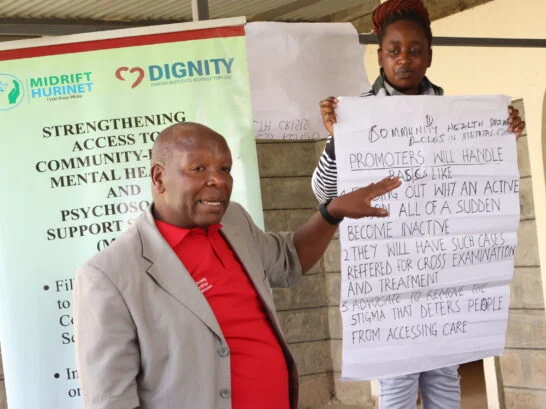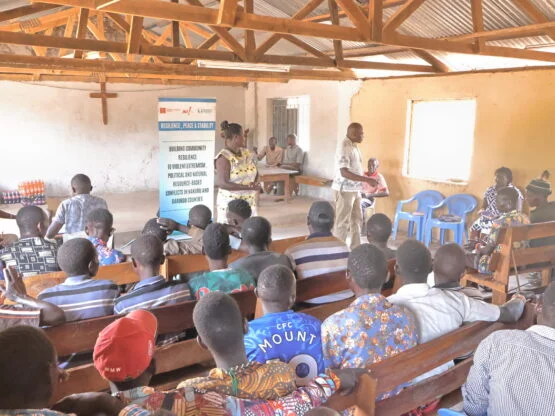Kenya continues to face significant peace and security challenges, with key concerns rooted in both historical and contemporary issues. Political and electoral violence remains a persistent threat, often exacerbated by unresolved post-election grievances, unaddressed demands, and intense ethnic mobilization. These factors fuel unhealthy political competition, which undermines national cohesion and destabilizes the social and political fabric.
Land disputes, both historical and ongoing, continue to be a major source of tension, especially in border and cosmopolitan counties such as Nandi, Kericho, Nakuru, Kisumu, Uasin Gishu, Trans Nzoia, Laikipia, Baringo, Turkana, Narok, Marsabit, Isiolo, Samburu, and the coastal region. These conflicts are fueled by unresolved grievances over land ownership, ethnic tensions, and the impacts of climate change, leading to an increase in resource-based conflicts, cattle rustling, and banditry.
The proliferation of illicit small arms and light weapons, the rise of organized criminal groups, and widespread Gender-Based Violence (GBV), all of which further destabilize communities and undermine efforts to achieve sustainable peace.
Radicalization and violent extremism, which frequently result in terrorism, remain ongoing threats, particularly in areas bordering Somalia, the coastal regions, Nairobi, and other counties. Alarmingly, extremist recruiters are expanding their reach beyond traditional Muslim-dominated regions, targeting areas like Central Kenya, Rift Valley, and Western Kenya. This shift is contributing to Kenya’s consistent ranking among the top 25 countries most affected by terrorism in the Global Terrorism Index over the past five years.
Kenya, a constitutional democracy, has made strides in promoting good governance, the rule of law, and human rights since the promulgation of the 2010 Constitution. However, the country still grapples with pervasive corruption, disregard for the rule of law, human rights violations, inequitable resource distribution, and deeply entrenched ethnic divisions.
Despite these challenges, MIDRIFT leverages the progressive legal framework in Kenya, particularly the provisions of Article 10 of the Constitution, to co-create and co-design programs with communities and stakeholders aimed at advancing national values and principles of governance. Key focus areas include:

(ECCES) Program is a USAID-funded program implemented by MIDRIFT HURINET in partnership with Act Change Transform (Act!) in Nakuru County under a project name Kura Ya Amani, Sote Tuhusike.
MIDRIFT HURINET’S mission is to empower Citizens, State and Non-State actors to inculcate a Culture of Human Rights, Good Governance, Peace and Security as a catalyst of achieving our vision of a prosperous society that enjoys Human Rights, Good Governance, Peace and Security
Through partnership with our development partners, we invest heavily in Strengthening the capacities of our staff, communities and Stakeholders who include Community Based Organizations (CBOs), Non- Governmental Organizations (NGOs) , Government Agencies & Departments, Faith Based Organizations (FBOs), Youth and Women groups to equip them with the right Mindsets, Skillsets and Toolsets to enable them deliver better results on their respective mandates and responsibilities and more significantly on our shared collective agenda of Good Governance ,Peace and Security.

IUVP is founded on intersectoral approaches such as the Public Health Approach (PHA), the Human Rights-Based Approach (HRBA) and the Human Security Approach (HSA)

This is a security intervention program funded and supported by the Foreign Commonwealth Development Office (FCDO) based in the United Kingdom and implemented by Tetra Tech International Development, Danish Demining Group (DDG) and Royal United Services Institute (RUSI).

Enhanced violence prevention mechanisms and strengthened access to community-based mental health and psychosocial support in Kenya.

MIDRIFT HURINET in partnership with Act Change & Transform (ACT!) is implementing the Resilience Peace and Stability program in Nakuru and Baringo counties in Kenya.

The overall objective of the project is to contribute to youth in local underserved communities being less prone to participate in crime and violent acts, and for the overall frequency of youth inflicted crime, drugs, and substance abuse) to drop in the targeted areas.

(ECCES) Program is a USAID-funded program implemented by MIDRIFT HURINET in partnership with Act Change Transform (Act!) in Nakuru County under a project name Kura Ya Amani, Sote Tuhusike.